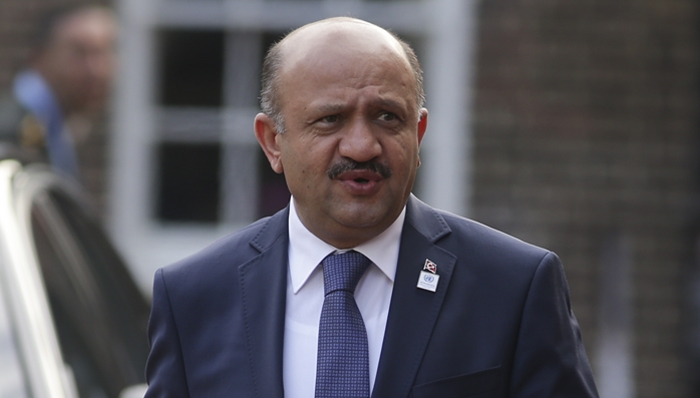Defense Minister Fikri Işık has said 149 officers including seven generals are still at large following a foiled coup attempt in Turkey on July 15, Hürriyet reported on Sunday.
“One military school cadet, 21 noncommissioned officers, 120 officers and seven generals are fugitives,” said Işık in response to a question by main opposition Republican People’s Party (CHP) deputy Ali Yiğit.
Although the Turkish military stated on July 27 that 8,651 military members including cadets and conscripts took part in the July 15 coup attempt, Minister Işık told the state-run Anadolu news agency on Dec. 11 that the government had dismissed a total of 22,085 military personnel including high-ranking generals over alleged links with the Gülen movement.
German media reported last month that around 40 mostly high-ranking Turkish officers who worked at NATO facilities in Germany had requested asylum as they feared persecution in Turkey in the aftermath of the failed coup attempt on July 15.
A report prepared by the EU Intelligence Analysis Centre (IntCen) revealed that although President Recep Tayyip Erdoğan and the Turkish government immediately put the blame for the July 15 failed coup on the faith-based Gülen movement, the coup attempt was staged by a range of Erdoğan’s opponents due to fears of an impending purge, according to a report by The Times newspaper on Jan. 17.
“The decision to launch the coup resulted from the fears of an incoming purge. It is likely that a group of officers comprising Gülenists, Kemalists [secularists], opponents of the AKP and opportunists was behind the coup. It is unlikely that Gülen himself played a role in the attempt,” said the report, dated Aug. 24, 2016.
The Aldrimer.no website reported on Jan. 25 that NATO sources believe the coup was staged by the president of Turkey himself.
Although the sources admit there is no written NATO documentation to support the claim due to its sensitivity, the website said that “the dominant NATO assessment is quite clear.”
Speaking to vocaleurope.com, a former Turkish officer who served at NATO headquarters in Brussels but was sacked and recalled to Turkey as part of an investigation into the failed coup on July 15 claims that the putsch was clumsily executed and never intended to bring down the government, but rather served as a vehicle for President Erdoğan to eliminate opponents and the ultranationalists to take a prominent role in the military and impose their “Eurasian” agenda on the country.
Strongly denying having any role in the putsch, Fethullah Gülen called for an international investigation into the coup attempt, but President Erdoğan — calling the coup attempt “a gift from God” — and the government initiated a widespread purge aimed at cleansing sympathizers of the movement from within state institutions, dehumanizing its popular figures and putting them in custody.
In a currently ongoing post-coup purge, over 135,000 people, including thousands within the military, have been purged due to their real or alleged connection to the Gülen movement, according to a statement by the labor minister on Jan. 10. As of Feb. 1, 89,775 people were being held without charge, with an additional 43,885 in pre-trial detention.


